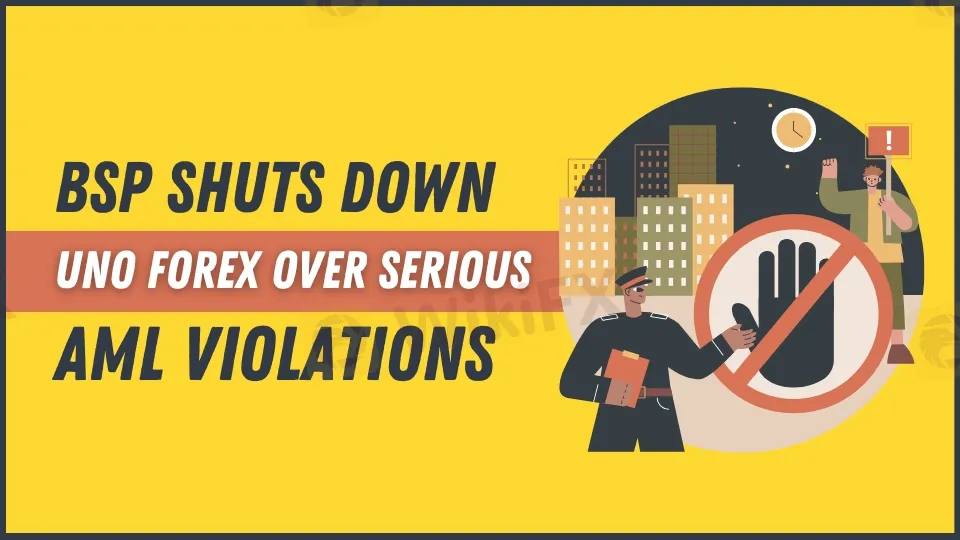BSP Shuts Down Uno Forex Over Serious AML Violations
abstrak:BSP cancels Uno Forex’s Inc. registration, marking its fifth shutdown this year over failure to comply with anti-money laundering laws, raising concerns.

In a troubling move for the financial sector, the Bangko Sentral ng Pilipinas (BSP) has canceled the registration of Uno Forex Inc., yet another foreign exchange dealer found guilty of severe violations of anti-money laundering regulations. This decision underscores the increasing pattern of negligence among firms in the industry, with Uno Forex becoming the fifth company to be blocked from operating this year alone.
The BSPs Monetary Board cited “serious violations” of the Manual of Regulations for Non-Bank Financial Institutions and the Anti-Money Laundering Act of 2001, emphasizing that these breaches are not minor infractions but represent a significant failure to uphold the law. The latest shutdown follows a disturbing trend of non-compliance by money changers and foreign exchange dealers, leaving questions about how these firms were allowed to operate unchecked for so long.

Earlier in the year, the BSP revoked the registration of Foreignex Inc. and Nikko Foreign Exchange, both for similar anti-money laundering offenses.
In fact, this pattern of regulatory failure seems all too common, with Nikko Mart and Atomtrans Tech Corp. also losing their licenses for serious non-compliance. The fact that five firms have now been shut down in 2024 alone raises serious concerns about the effectiveness of the BSPs oversight.
While the BSP argues that its actions are meant to preserve the integrity of the financial system, it begs the question: how did these companies manage to operate for so long without facing any consequences? With lax enforcement and repeated violations by multiple institutions, the central banks regulatory framework seems to be failing in its core responsibility—preventing illegal activities within the financial sector.
The BSPs cancellation of Uno Forex's registration is a reminder that the financial system in the Philippines is still vulnerable to criminal misuse, and much more stringent oversight is needed to prevent further damage.
Final Thoughts
The BSPs repeated shutdowns of firms due to non-compliance with anti-money laundering regulations highlight a disturbing pattern of regulatory failure. If the central bank is serious about its mission to protect the financial system, it must take stronger, more proactive measures to ensure compliance before the damage is done, rather than cleaning up after the fact.

Broker ng WikiFX
Exchange Rate

